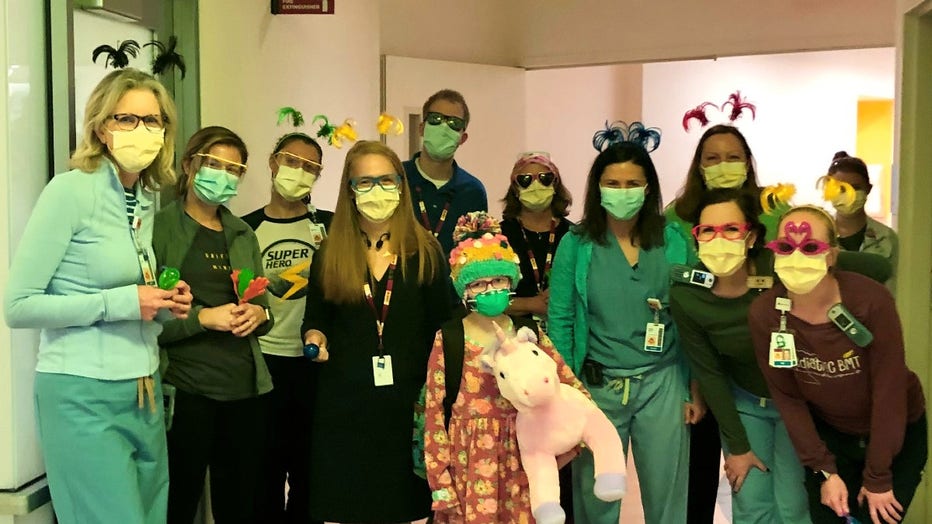Siblings first to get bone marrow transplant to treat 'one in a million' genetic condition
MINNEAPOLIS (FOX 9) - Doctors at M Health Fairview University of Minnesota Masonic Children’s Hospital are the first in the world to use a bone marrow transplant to help treat a rare genetic condition called multiple sulfatase deficiency.
Multiple sulfatase deficiency, or MSD, is passed along to children if both of their parents carry a specific genetic mutation. The condition leaves kids short of several enzymes needed to get rid of waste in the body. The condition can present itself in children by effecting some cognitive development, hearing loss or skin conditions. Many children diagnosed with the condition do not live to see their teenage years.
"We would use the term ‘ultra-rare’ for a disorder like this," said Dr. Paul Orchard, a pediatric blood and marrow transplant physician at M Health Fairview University of Minnesota Masonic Children’s Hospital.
Dr. Orchard and his team at the U had used bone marrow transplants to treat conditions similar to MSD, but because the condition is so rare, they had never tried it to treat this condition specifically.
"This is a rare, inherited disorder. It’s literally one in a million and there’s no therapy available for this disorder," Dr. Orchard said.

Medical staff at M Health Fairview University of Minnesota Masonic Children’s Hospital pose with Grace, who received a first-of-its-kind bone marrow treatment for her condition.
Last year, while attending a medical conference, Dr. Orchard met the Goodin family from Columbia, Missouri. Now 10-year-old Grace Goodin and her now 8-year-old brother Grant, had both been recently diagnosed with MSD.
"There were not treatments at all. We were basically told there’s nothing available," Grace and Grant’s mom, Tonya Goodin, said.
Dr. Orchard asked the Goodin family if they would consider being some of the first in the world to try a bone marrow transplant to treat the rare condition. Bone marrow transplants can come with some medical challenges, and it was a risk for the family to try something that had never been done before.
"We came here knowing we were the first in the world and it was pretty nerve-wracking," Goodin said.
Grant and Grace received their treatments a few weeks apart. Each had to be closely monitored for at least 100 days after the transplant. Dr. Orchard said it’s too soon to tell exactly how big of an impact the treatment had, but early testing indicates their bodies are receiving the treatment well.
"We thought if we try something, hopefully it could open the door and treat our children and open the door for so many other families to have a treatment available in the future if we can show this is promising," Goodin said.
Dr. Orchard said the bone marrow came from a match provided through the Be the Match Foundation. For more information on MSD and Grace and Grant’s story, check out their nonprofit, The Grant us Grace Foundation.

